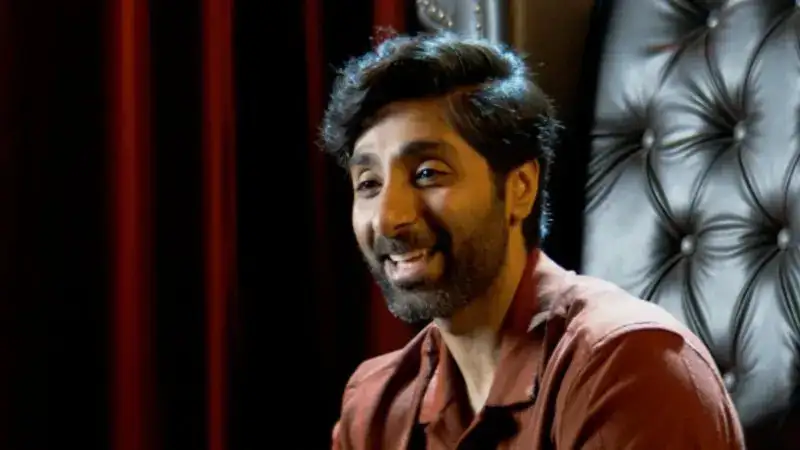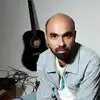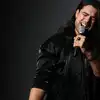Advertisement
Ved Shanker on friendship, film, and finding the right sound - Exclusive
 Meera Venugopal • Updated on Apr 22, 2025 | 05:53 PM IST
Meera Venugopal • Updated on Apr 22, 2025 | 05:53 PM ISTShare via

More than a decade since his debut, Ved is back with
Your earlier work, like Naduvila Konjam Pakatha Kaanum, was very different in tone and mood. From then to now, how has your approach to scoring and music evolved?
As a human, more so as an artist, evolution is essential and inevitable. The degree of evolution with respect to scoring the music, I guess, largely depends on the film projects one chooses. Over the years, I might have improved on my musical proficiencies and capabilities as a producer, composer, and engineer, but at heart, if I am not able to connect with the script and be honest with my work, the output will directly reflect that. My approach to scoring, I guess, is very similar to that of a method actor. I like to get into the mind of the character and the mind of the director so that I can give an output as close to the vision of the director as honest to the artist inside me. So to answer your question, I guess my approach has really not changed, the approach being as honest and committed to the project as possible. With respect to evolution, maybe insecurities of making it sound “big and full” have gone down, and the focus is now more towards making it sound “true and pure."
What have been some defining moments in your musical journey so far?
“Hey Crazy Penne” from Naduvula Konjam Pakkatha Kaanom was the first song of mine that was ever released, and that was definitely a defining moment considering that I had composed, produced, written and sung that song. I was signed on for NKPK to only produce that one song but got the opportunity to compose music for the whole album. The film “Azhagu Kutti Chellam” was also really special for me, with the title song doing so well, and so many people even today reach out saying how that song has had such a strong impact on their lives. What was even more rewarding was people noticing my skills as a composer for film background score, which felt really good. In those lines, I feel Naangal will be my best work till date, having had the opportunity to work with world-class musicians. Recording the Firdaus Orchestra for the score was truly special and a memory that I would always deeply cherish.
Naangal is a deeply emotional story about 3 boys who grew up with their authoritative father. Can you talk about what composing for the film has been like?
Composing for the film was a breeze. I was given the director’s cut of 4 hours and 19 minutes, for which I had to score. It took me about 16 hours to compose the whole score and about 3 days of production time. What took the most time was the sound design and working on truly bringing the sound of Naangal live on Dolby Atmos.
Director Avinash has earlier mentioned that you both wanted a European-style score. What inspired this idea?
The sound palette of the film was defined very early in the composing process. We knew exactly what we wanted and, most importantly, what we did not want. The European style score was essentially Avinash telling me that he did not want an over-dramatised musical score with emphasis on strong melodies and overpowering tones. The music had to be atmospheric and textural, but still have an impact. This was a unique challenge as I had to strike a balance between the score being musical and not too atonal in nature. I guess I have done a reasonably good job in managing.
You worked with the Firdaus Orchestra and recorded 45 minutes of score in just seven hours. Can you talk about this?
Truly a memorable experience. My orchestrator, Anjana Rajagopalan, the engineer at Firdaus, my good friend
In one of his interviews, director Avinash said that he became teary-eyed listening to the trailer music with the solo violin. Can you tell me about composing the piece and more about it?
That was the only time to date I have gone into a recording without an iota of an idea of how I am going to crack this. The trailer was challenging for me, and I had already given Avinash a couple of tunes, which he rejected. Angered, I just wanted to get done with the process, but I knew this was the film’s visiting card and I could not take it lightly. So I decided to challenge myself and hired a musician and wanted to compose on the spot. Definitely a huge risk, but I guess it paid off. Thankfully, it was one of those days where you are in a zen zone and the true “artistic flow state” happened and I am grateful for the way it turned out. We were so inspired post the trailer session we decided to rework the most important scene in the movie then and there and what we were able to come up with was a hundred times better than what we had initially done so I guess in a way it was good that he rejected my first few tunes and pissed me off.
How did you approach the idea of scoring emotion without dialogue? Did you build the music scene by scene, or did you work with broader emotional cues?
The approach to the score was very thematic, taking broader emotional cues. Even the edit was done in such a way that it really did not feel like you were watching something scene by scene, but you were feeling something in this particular passage of time and something else at another point. So every theme that I composed in the film is a minimum 2-3mins long and is almost a song in itself without a voice or words.
As a composer, how do you balance restraint and drama, especially in a film like this where music plays a major role but doesn’t ‘announce’ itself?
By defining the sound palette and being smart with the usage of the instruments and melodic patterns that I composed. I wanted more legatos and glissandos in the score than staccatos and defined notations. I went for a more midish tone and the lead instruments being Viola rather than a violin and clarinet rather than a flute, continuing the theme of midish-toned warm instruments. These defined the soundscape perfectly and did not clash with the frequencies of live sound and dialogue. And mixing it in Dolby Atmos gave us many more dimensions to position and move the sound.
What kind of stories do you want to explore next? Any dream collaborators or styles you’re curious about?
I am always open to any kind of story, but what I feel is needed most is trust. You are stepping into an unknown territory every time it comes to making art. And rather than being in a zone of “I need to prove my worthiness to this producer/director” the zone of “these people trust me to put my best effort and whatever I give in that regard should be good” is a state I would like to work in. Even with Naangal, the kind of initial scratch tunes I had put, if it were any other director, I would have had to put in a lot more effort to convince that this is how it would eventually sound. But with Avinash, the absolute trust he had in me gave me more confidence, responsibility and accountability to deliver my best. In that light I look forward to collaborating with people who have that kind of an approach to making films. It is not so much the script or the budget or the story but more so the belief the director and the entire team have.
To catch the latest updates in the music world, head to Gaana.com now!











